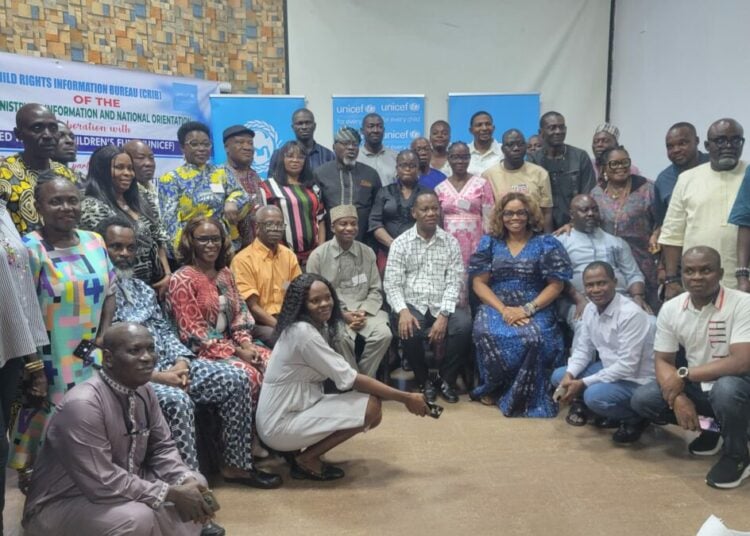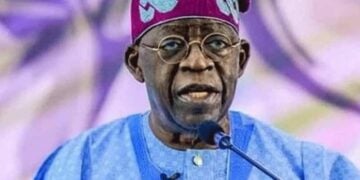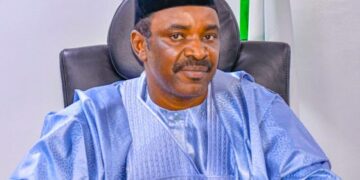Media practitioners have been urged on a renewed commitment to championing ethical child rights reporting.
The United Nations Children’s Fund (UNICEF) and the Federal Government of Nigeria which gave the charge, said upholding ethical and highest standards of journalism, especially on children issues, was to shape the future they deserve.
The UNICEF Chief of the Lagos Field Office, Celine Lafoucriere, and Permanent Secretary, Federal Ministry of Information and National Orientation, Mr. Ogbodo Chinasa Nnam, spoke during a two-day training for journalists on Ethical Journalism and Child Rights Reporting, held in Ibadan, Oyo State.
The workshop, which drew participants from the South-West, Edo, and Delta States, was organised by the Child Rights Information Bureau (CRIB) of the Federal Ministry of Information, in collaboration with UNICEF.
In her keynote address, Lafoucriere, who explained that the work of a journalist is vital to the health of democracy and the well-being of communities, described ethical reporting as a moral imperative that influences how society views and treats its children and how children see themselves.
Maintaining that responsible storytelling is key to protecting the dignity and well-being of the Nigerian child, she said: “At UNICEF, we believe that every child has the right to be seen, heard, and protected. It is about ensuring that children are portrayed with dignity, that their stories are told with care, and that their rights are never compromised for whatever gains.”
Speaking further on ethical reporting, the UNICEF boss said, “It protects the most vulnerable. When we report on children, especially those affected by violence, conflict, or abuse, we must do so with the utmost sensitivity. protect their identities, avoiding sensationalism, and ensuring that their voices are heard in a safe and respectful way.
“Ethical journalism builds trust. Is committed to truth, fairness, and when you report responsibly, you become a trusted source of information and help communities understand, heal, and grow. It shapes the future. By choosing to report ethically, you are helping to build a Nigeria where every child is valued, protected, and given the opportunity to thrive.
“Remember, the way we report on children today shapes the kind of society we build tomorrow. By choosing ethics, you choose protection. You choose dignity. You choose a better future for every child in Nigeria.”
For her part, the Permanent Secretary in the Federal Ministry of Information, who was represented by the Assistant Director/Head, CRIB, Mr Falayi Temitoye, said the training was designed to help journalists to reflect on their ethical obligations as media practitioners.
“To explore best practices for reporting on children’s issues, and strengthen our understanding of child rights as enshrined in national laws and international conventions. We aim to build a media culture that protects children’s identities, amplifies their voices responsibly, and upholds the highest ethical standards,” she stated.
The representative said journalists play a vital role in shaping public understanding, influencing attitudes, and protecting the most vulnerable members of the society.
According to him, “When it comes to stories involving children, that responsibility becomes even greater. Every image, every word, and every frame we publish can have lasting consequences on a child’s life, safety, and future.”
Communication experts and journalists, including Prof. Charles Obot, Dr. Jide Johnson, Dr. Geoffrey Njoku, Mr Lekan Sote and Susan Akila of the UNICEF, while speaking at the event, stressed the need for journalists to always make ethical reporting their watchwords, by telling and writing stories of children responsibly.
In his presentation, Prof. Charles Obot of the University of Uyo, Akwa-Ibom State, said part of the guiding principles was to ensure that the dignity and rights of every child are respected and protected in every circumstance in interviewing and reporting on children.
He said, “Special attention should be paid to each child’s right to privacy and confidentiality, to have their opinions heard, to participate in decisions affecting them and to be protected from harm and retribution, including the potential of harm and retribution.The best interests of each child are to be protected over any other consideration, including over advocacy for children’s issues and the promotion of child’s rights.”
Another facilitator, Dr Johnson, there were many challenges facing the children which include early marriage, genital mutilation, rape, child trafficking, child prostitution, child labour, among others.
He said it was important to represent the voice of the vulnerable and voiceless segment of the society and to inform and educate the people about issues affecting children.
“To foster the development of values and attitudes that promote child’s development, sensitise and mobilise community members actions issues affecting children, facilitate the development of values and attitudes that promotes Child’s rights, provide update on issues and interventions that empowers al in decision making..We need to support and mobilize resources – government at levels, community, stakeholders etc) towards advocacy, promotion, and institutionalizing issues relating to child rights issues and development,” he stated.





